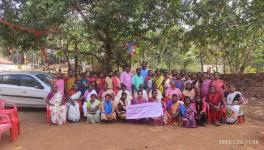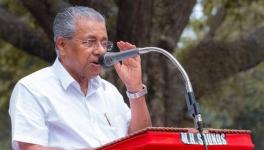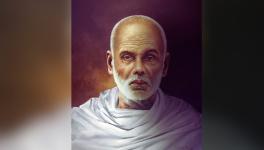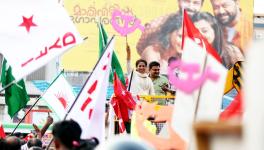Swatantra 2017 Draws Attention to Possibilities of Free and Open Source Software; Highlights Kerala’s IT Initiatives
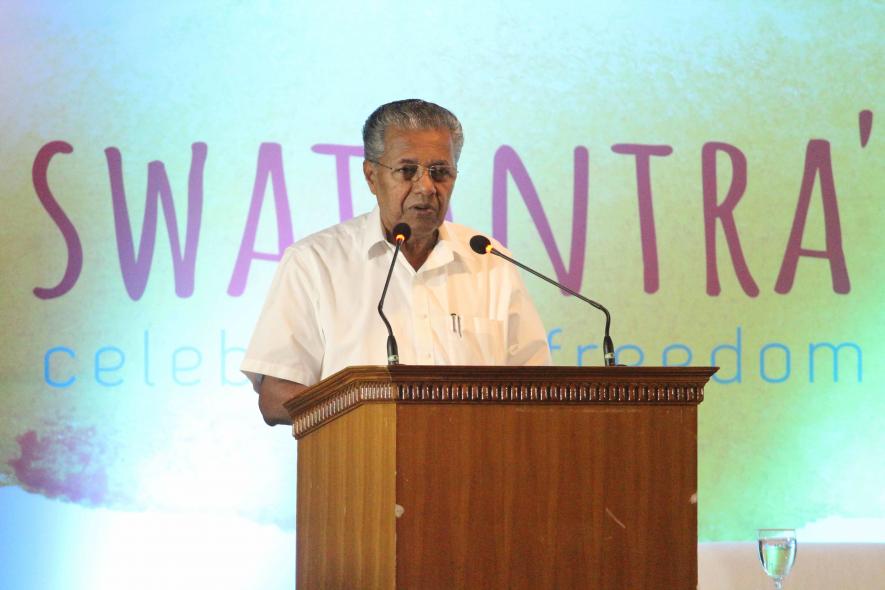
Swatantra 2017, an international conference on Free and Open Source Software (FOSS), became the platform for discussions on emerging developments in the field, and highlighted the major FOSS initiatives of the Government of Kerala.
Held on 20 and 21 December 2017 at Thiruvananthapuram, Swatantra 2017 was the sixth edition of the conference held on a triennial basis, and was organised by the International Centre for Free and Open Source Software (ICFOSS), an institution set up by the Kerala government.
Around 400 free software enthusiasts – students, IT professionals and others – participated in the conference, with 36 speakers from across the globe sharing their experiences and leading sessions on a range of topics. Kerala Chief Minister Pinarayi Vijayan inaugurated the conference, the slogan of which was ‘Celebrating Freedom’.
There were sessions on the use of FOSS in government and the public sector, while a few sessions were devoted to introducing some popular FOSS applications and tools. Several speakers talked about the larger issues concerning free software and the future of computing itself. These included Karen Sandler, executive director of the Software Freedom Conservancy and former director of the GNOME Foundation, who delivered the keynote address, and Todd Weaver, CEO of US-based tech firm Purism, who delivered the Plenary Talk.
Considering the low proportion of women in IT and even among the engineering college students, ICFOSS had conducted a Woman Hackathon for women college students in Kerala in August. The Woman Hackathon, organised in association with the Society for the Promotion of Alternative Computing and Employment (SPACE), came in for praise at the conference. Several participants of the Hackathon also attended Swatantra 2017, and said that FOSS cells have been formed in several engineering colleges in the State.
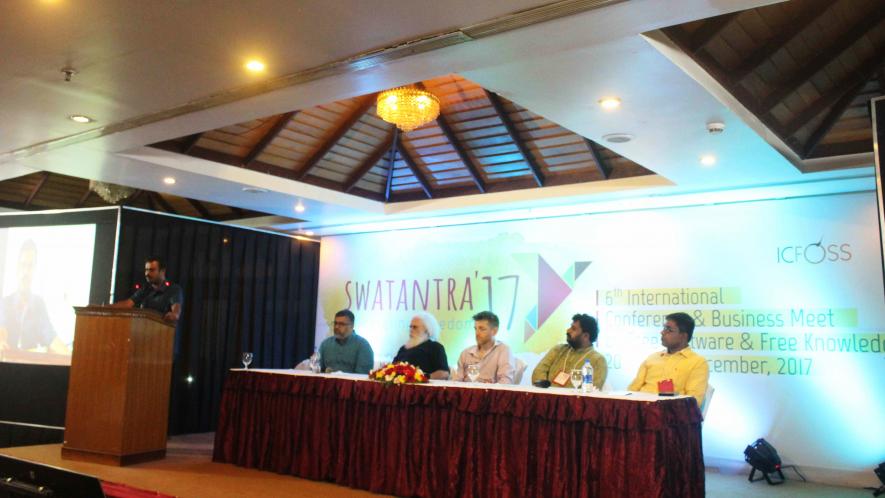
There were also sessions which talked about open source hardware, and a session on Malayalam computing which has grown by leaps and bounds in the recent years.
Newsclick talked to Arun M, Programme Head at ICFOSS and a leading organiser of the conference, regarding the conference and the evolution of the free software initiatives in the State. “Kerala had free software groups from around 1996 onwards. As a result of their efforts, several meetings and conferences on free software were held in the State. A major event in this regard was the Freedom First! conference held at Thiruvananthapuram in July 2001, where Richard Stallman inaugurated the Free Software Foundation of India (FSF India), the official Indian affiliate of the Free Software Foundation,” Arun said.
“Education was among the early focus areas for the free software interventions in Kerala. Efforts to bring IT to the schools took the shape of the IT@School programme launched in 2001. When it began, the programme was based on proprietary software, and the free software activists challenged this, leading to major debates. With a major section of teachers favouring free software, IT@School shifted to the teaching of free software in schools,” he said. Today IT@School describes itself as the “world's largest simultaneous deployment of free and open source software based Information and Communication Technology (ICT) education.”
“There were also debates which intensified towards the end of the 1990s on using free software in government. Eventually the Kerala government came to the position that there will be efforts to use free software wherever possible. As awareness of FOSS increased, more government departments began adopting free software. ICFOSS beginning to function in 2011 was a result and follow-up of all these developments. Some strong interventions are being made by the ICFOSS in promoting free software.”
“Free software debates were perhaps at their peak during the mid-2000s, but were on a decline since then even as the use of free software was increasing. But the issues of software freedom and so on came back strongly into the public discourse with the revelations made by Edward Snowden in 2013. The discussions on free software with its many dimensions – beyond just the issue of pricing – thus became alive once again. Swatantra 2017 should be viewed in this context, and many of the discussions here are in keeping with this. How to free networks? How to free email and community infrastructure? These are among the questions we are debating.”
“Public debates on free software in Kerala have gone beyond the confines of technical experts, with the possibilities of using FOSS for social development being discussed intensely. Projects such as IT@School, and Insight (a Kerala government project which aims to use ICT for the development of the disabled) are among the successful outcomes of such debates,” Arun added.
Among the most noteworthy FOSS-based IT initiatives of the Kerala government has been the ones implemented by the Kerala State Electricity Board (KSEB) Ltd.
R Ramesh, a member of KSEB’s ‘Team OrumaNET’ made a presentation at the conference about the public sector utility’s IT initiatives.
KSEB had come up with its own billing software in the year 2000, but later after a change of government, a proprietary software from Microsoft was introduced through PricewaterhouseCoopers, resulting in enormously increased costs.
Again with the Left Democratic Front returning to lead the government in 2006, a new IT policy was announced, following which free software developed in-house by the KSEB began to be used again. The decentralised billing software ‘Oruma’ (meaning “unity”) was inaugurated in March 2007, and the centralised billing software ‘OrumaNET’ was launched in 2014.
Free software-based systems are now being used by the KSEB for human resource management, supply chain management, accounting, online bill payment, customer care, outage management and bill alerts. The HRIS package for human resource management is used for managing payrolls, provident funds, pensions and transfer of staff. Use of the software for managing staff transfers is expected to bring about far-reaching changes – earlier many people made use of their connections to get “convenient” transfers, leading to some areas being overstaffed and others remaining understaffed. This is set to change as the new system has been put into place.
While the deployment of FOSS by government departments in Kerala has increased over the years, there are areas where proprietary software is still being used and where the use of FOSS could be extended. Sources point, as an example, to the Kerala government’s e-Health initiative, which seeks to develop electronic health records (EHR) to capture demographic data, automate hospital processes and bring all relevant information into a centralised State Health Information system through a network. The project was initiated in 2013, and its pilot run began in mid-2016. The software that has been developed for the purpose is proprietary, sources say.
Presentations at Swatantra 2017 showed that there are viable alternatives to this based on the FOSS platform.
Luis Falcon from Spain spoke on GNU Health, a FOSS project which provides the functionality of Electronic Medical Record (EMR), Hospital Management and Health Information System (HIS). It can be deployed in many different scenarios, ranging from small hospitals to large, national public health systems.
"Most public health systems are using proprietary software, which is by itself a contradiction. If public health is a public good, how can I run it with private software?," Falcon asked.
Jamaica and Laos are going for a country-wide effort to deploy free software to run their public health systems, Falcon told Newsclick. "Laos's largest hospital has already implemented GNU Health, while Jamaica's primary care centres are in the process of deploying the software. In Argentina the province of Entre Rios has many healthcare institutions which have already migrated to GNU Health. The Red Cross in Mexico has also implemented it. There are many other places too where GNU Health has been implemented, but we don't get to know the exact location always, because people can freely download and install it at whatever level they want - whether it be primary care centres, regional hospitals or country-wide."
The presentation by Angshuman Sarkar drew attention to Bahmni, an open source EMR and hospital system, which is being used and recommended by healthcare institutions in several countries of Asia and Africa. Bahmni, described as a hospital system for low resource settings, has been implemented in hospitals in Nepal, Bangladesh, Sierra Leone and Uganda, apart from hospitals in Gadchiroli, Bilaspur and Gudalur in India. Just as in the case of GNU Health, there are large numbers of implementations in locations which the makers of Bahmni are unaware of, as people can freely download and implement it independently.
Swatantra 2017 ended on a high note on Thursday, with M. Sivasankar, the Secretary of the Department of Electronics and Information Technology, announcing that the hitherto triennial event would henceforth be held once every two years. The next Swatantra would be held in 2019, he said to cheerful applause by participants.
Get the latest reports & analysis with people's perspective on Protests, movements & deep analytical videos, discussions of the current affairs in your Telegram app. Subscribe to NewsClick's Telegram channel & get Real-Time updates on stories, as they get published on our website.










